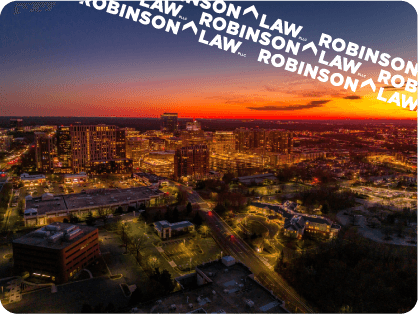Virginia High Court Allows Defendant to Challenge Lawfulness of His Arrest at Trial | Robinson Law, PLLC
Traditionally, when a defendant seeks to challenge the legality of his arrest, he does so in a motion to suppress. In a motion to suppress, the court hears evidence about the recovery of the evidence in question and determines whether the state or federal constitution requires the suppression of the evidence.
However, in a recent case before the Supreme Court of Virginia, the court reversed the conviction of a defendant who was arrested for DUI. The facts of the case are straightforward: police attempted to stop a boater, who sped away and eventually ran ashore. The boater got out and ran. Law enforcement eventually caught him and ultimately charged him with operating a boat under the influence. The defendant refused a breath or blood test.
The defendant did not file a pre-trial motion to suppress. Instead, at trial, the defendant attempted to argue that his arrest was unlawful. However, the prosecution objected, claiming that the defendant waived his right to challenge the legality of his arrest by not filing a motion to suppress. The trial court agreed, prevented the defendant from challenging the lawfulness of his arrest, and then convicted him. The defendant appealed.
On appeal, the defendant argued that the trial court impermissibly prevented him from challenging his arrest. In this case, the Supreme Court of Virginia agreed with the defendant. The court explained that the state’s implied consent law presumes that anyone who is lawfully arrested consents to chemical testing within three hours of their arrest for boating under the influence.
Because one of the charges the defendant faced was refusing chemical testing, the court explained that the legality of his arrest was an element of the offense. Thus, the lower court could not infringe on the defendant’s ability to defend against the charges by preventing him from challenging the lawfulness of his arrest. In differentiating this case from others where a defendant may try to raise arrest-related issues, the court noted that the defendant was not trying to suppress any evidence. Instead, here, the defendant was attacking.
The court reversed the defendant’s conviction and sent the case back to the trial court to determine when the defendant was “arrested” and if the officer had probable cause to arrest the defendant at that time. So, while the defendant is not off the hook, he is certainly in a better position than he was.
Have You Been Arrested for Boating Under the Influence?
If you are facing a Virginia DUI offense, contact the dedicated criminal defense lawyers at Robinson Law PLLC. At Robinson Law, we stay on top of all developing legal issues to ensure we provide our clients with exceptional representation from the moment we begin working on their cases. We have decades of combined experience handling all types of Virginia drunk driving offenses and know what it takes to succeed in even the toughest of cases. To learn more about how we can help, and to schedule a free consultation with one of our attorneys, give us a call at 703-542-3616 today.












